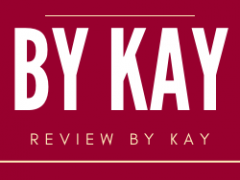Under current regulations, this isn’t a requirement and it might easily be translated to mean that directors need not provide private action reports. But even without regulation, the meaning has been enlarged to include more than just financial information about company activities. Now, it is also required to include non invasive information like registration in a professional organization.
Enhancing the Workplace’s Long Term Care
It’s necessary to remember that the purpose of the A-olas was supposed to limit personal activities to those directly related to the performance of the business. In this regard, it is most likely safe to assume that the purpose of the A-olas was not to restrict non-work activities. Regrettably, that’s now being reworded since the”prohibition against self-dealing” rather than the more specific prohibition against work hours. The outcome is an unnecessarily intricate and confusing interpretation of a record that should simplify and be more comprehensible to readers now. That is unfortunate, as the present regulatory environment makes it nearly impossible for businesses to comply with internal policies without having a professional interpretive commentary to rely on in determining compliance. 1 reason for this expansion is that the growing international economy and the desire by banking regulators and other regulatory agencies to utilize available information to assess risk. melbourne disability services
Another area that’s increasingly being regulated is both overtime and compensatory time, each of which are cases of non-work activities which often constitute the huge majority of private activities performed by workers. The unintended consequences of these changes has caused many employees focusing on personal tasks only to discover that they cannot look after their main tasks because of inadequate work time. Even worse, some companies have discovered that workers are doing work beyond their capacity and, consequently, overtime is needed or compensatory time is utilized in order to guarantee the completion of these work. The resulting scenario leaves company supervisors and workers feeling confused about how to make company decisions and how to act.
Enhancing the Workplace’s Long Term Care
Because companies now must think about how their respective activities relate to each other, they must also upgrade policies regarding their respective personal pursuits. By way of example, an updated policy regarding the permissible tasks associated with personal care and housework should specify that housekeeping tasks, like setting up a mattress, cooking meals, bathing a sick child, dusting, and moving furniture, should be performed on a scheduled basis just after receiving help. This new policy removes the need for workers to manage too many jobs between housework and personal care. This simple but profound change will benefit everyone, particularly those who might struggle to juggle between work and home life. Other firms may elect to add more detailed policies, which are tailored to the company, to their general personal care and housework policies.

The introduction of a mandatory two-week vacation from time is another important example of how workers can benefit from scheduling tasks. Vacations not only give employees time to decompress, they also free them up for longer periods of time when it comes to meeting with clients and conducting customer support tasks. With fewer work hours available, it’s harder for an employee to juggle between work life and private life. A vacation is a great way for workers to decrease both work life and private life obligations at once.
Enhancing the Workplace’s Long Term Care
An important aspect of updating policies for personal activities is to consider the connection between them and work hours. In the end, it is impossible to possess personal activities beyond work. In reality, many employees choose to combine work and personal activities, such as weekend getaways, nights out on the town, or daily exercise. However, a workforce that is constantly tied down to their own work life may find itself less effective. By connecting these activities to work hours, managers can make sure that workers can keep a balance between personal life and work .
An important factor of the development of policies for private activities is to think about the way that these actions help workers develop skills and contribute to their own development as a person. The connection between working to produce skills and the development of a individual is often subtle. As an example, a worker who functions to manage a project will likely benefit from education on effective communication abilities. On the other hand, a personal tasks for assistance with, or supervision of, daily living activities helps someone learn how to care for themselves.
While the development of a person’s abilities and skills is an important purpose of the workplace, permitting personal activities to be performed after hours helps decrease the possibility of burnout. In the event the private activities policy was designed to provide a day of care, it would incorporate education for employers to set a plan for providing overnight support. Overnight support can be provided by an onsite maintenance giver or a worker who travels to the center every night. The onsite care giver may offer consistent overnight support contingent upon agreed upon hours, or it can require that employee’s regular schedule appointments for care givers to see them. A self-care hours policy designed to satisfy the requirements of their care recipient will more effectively permit a individual to meet the aims of the workplace.

